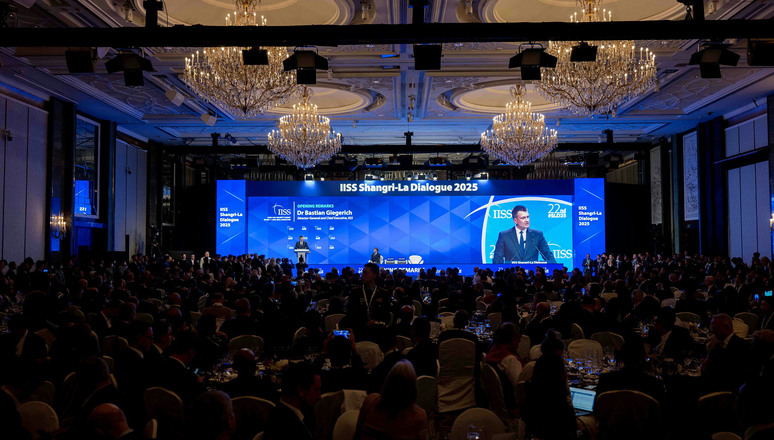Deputy Chair of the NATO Military Committee Engages Indo-Pacific Partners at Shangri-La Dialogue 2025
Lieutenant General Andrew M. Rohling, Deputy Chair of the NATO Military Committee, participated in the 2025 IISS Shangri-La Dialogue in Singapore, highlighting NATO’s commitment to building stronger dialogue and cooperation with partners in the Indo-Pacific. His presence at the conference reflected the Alliance’s growing attention to global dynamics that influence Euro-Atlantic security.

Photograph courtesy of IISS
On the sidelines of the event, LTG Rohling and Assistant Secretary General for Political Affairs and Security Policy Ambassador Boris Ruge- also present at the conference- held several bilateral meetings with political and military stakeholders from the Indo-Pacific. These exchanges focused on areas of shared interest such as maritime security, cyber defence, and strategic resilience, reinforcing NATO’s commitment to supporting international stability and a rules-based order through enhanced cooperation with like-minded nations. LTG Rohling also engaged with defence industry representatives, discussing approaches to enhancing private and public sector cooperation.
Key themes at the 2025 Shangri-La Dialogue included regional stability, maritime cooperation, and the importance of maintaining open channels of communication. Participants exchanged views on evolving global security environment and the role of multilateral engagement in reducing tensions. Broader discussions also touched on lessons learned from ongoing conflicts, the need to strengthen resilience against cyber and hybrid threats, and the value of practical cooperation in addressing shared challenges.
The Shangri-La Dialogue, organized annually by the International Institute for Strategic Studies (IISS), convenes defense ministers, military leaders, and security experts from around the world to address pressing regional and global security challenges. NATO’s engagement in this forum underscores its recognition that today’s security environment is increasingly interconnected—and that strategic dialogue beyond the Euro-Atlantic area is essential to fostering global peace and stability.
